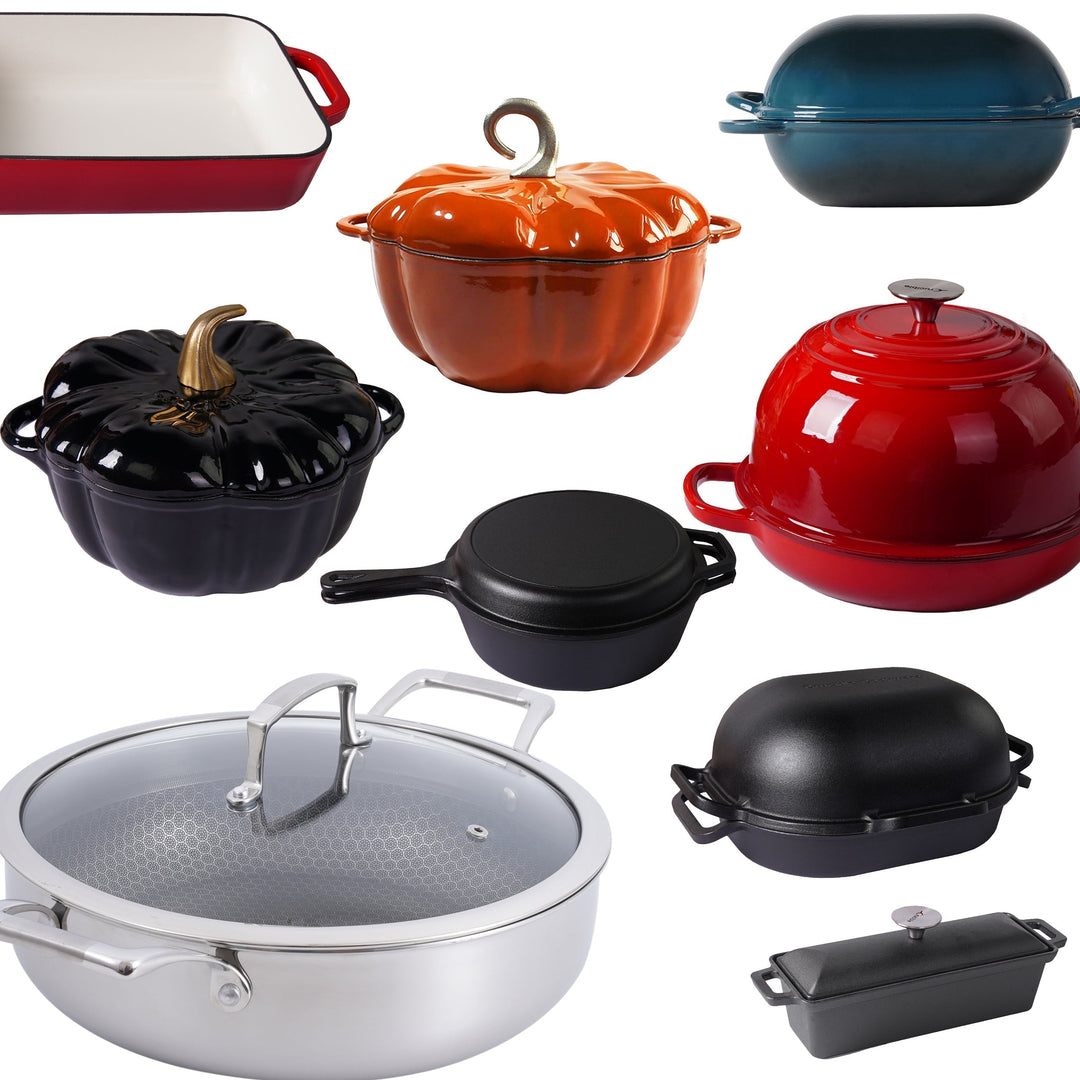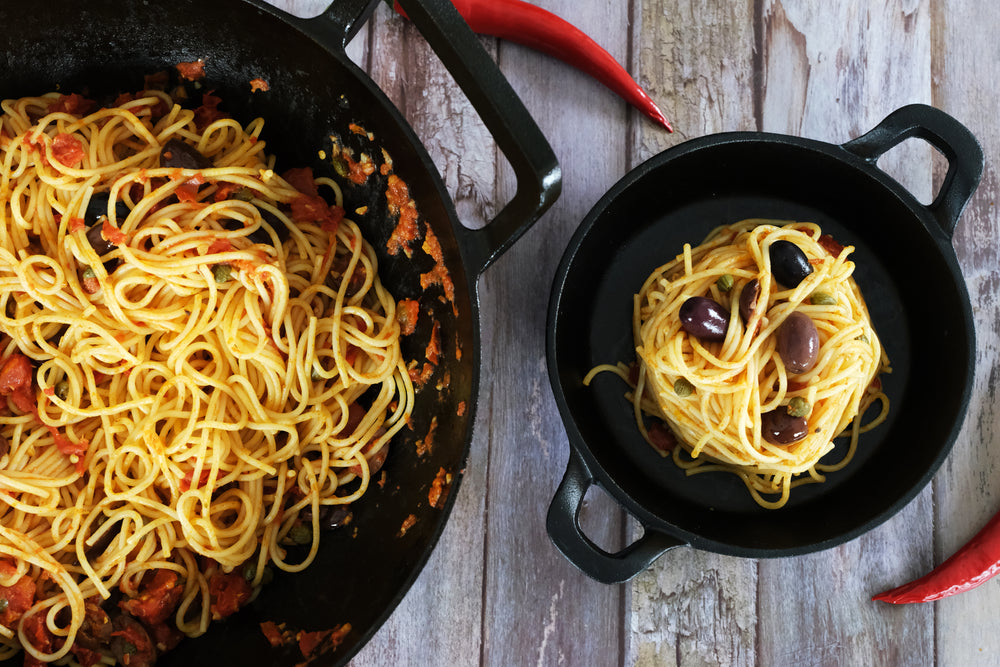Gleden ved mat: Utforske vår kjærlighet for kulinariske gleder
Mat er en integrert del av livene våre, og vår kjærlighet til den er ubestridelig. Fra vi blir født, lengter vi etter forskjellige smaker og teksturer, og dette vokser bare etter hvert som vi blir eldre. Gleden ved å bite i en saftig, moden frukt eller nyte et varmt, trøstende måltid kan ikke matches. Vår kjærlighet til mat handler ikke bare om å tilfredsstille sulten; det handler om den sanselige opplevelsen, minnene knyttet til den, og den kulturelle betydningen den har.

Mat er en opplevelse som engasjerer alle våre sanser. Lukten av nybakt brød, fresingen av kjøtt på en varm grill, knasingen av en sprø potetgull, den silkemyke teksturen av iskrem på tungen, det visuelle inntrykket av en vakkert anrettet rett - alle disse elementene kombineres for å skape en uforglemmelig opplevelse. Våre smaksløker og luktesans samarbeider for å hjelpe oss med å identifisere forskjellige smaker og nyte nyansene i ulike kjøkken. Lyden av matlaging og spising, enten det er den milde småkoking av en suppe eller den tilfredsstillende knasingen av en kjeks, tilfører et ekstra lag til opplevelsen vår.
Mat har også kraften til å fremkalle minner og følelser. Vi forbinder visse matvarer med barndommen vår, med spesielle anledninger, med mennesker vi elsker. Lukten av nybakte kjeks kan minne oss om bestemors kjøkken, mens smaken av en bestemt rett kan ta oss tilbake til en ferie vi hadde med familien. Mat er også nært knyttet til vår kulturelle identitet, og vi uttrykker oss ofte gjennom maten vi spiser. Fra tradisjonelle familieroppskrifter til fusjonsmat, kan mat reflektere våre røtter og våre verdier.
Vår kjærlighet til mat går utover bare den fysiske opplevelsen; den har også sosial og psykologisk betydning. Å dele et måltid med venner og familie er en samlende opplevelse, og vi knytter ofte bånd med mennesker gjennom mat. Å lage og servere mat til andre kan også være en måte å uttrykke kjærlighet og omsorg på. I tillegg kan mat ha en terapeutisk effekt, og vi vender oss ofte til visse matvarer for trøst i tider med stress eller sorg.
Igjen kan vi si at det virkelig er noe ubestridelig tilfredsstillende ved å nyte deilig mat. Enten det er en perfekt stekt biff eller en rik, dekadent dessert, kan opplevelsen av å nyte en rett som er mesterlig tilberedt være en sann glede.

En nøkkel til å nyte mat er å senke tempoet og nyte hver bit. Altfor ofte haster vi gjennom måltider, knapt pauser for å smake på det vi spiser. Men å ta seg tid til virkelig å nyte hver bit kan forbedre opplevelsen og la oss fullt ut sette pris på smakene og teksturene i retten.
En annen måte å nyte mat på er å være oppmerksom på presentasjonen. En godt presentert rett kan være en fest for øynene, og kan gjøre spiseopplevelsen enda mer behagelig. På samme måte kan atmosfæren i omgivelsene spille en rolle i hvor mye vi nyter maten vår. Enten vi spiser på en travel restaurant eller nyter en piknik i parken, kan miljøet ha stor innvirkning på opplevelsen vår.
Selvfølgelig er kvaliteten på maten i seg selv også avgjørende. Når vi spiser mat som er fersk, smakfull og tilberedt med omsorg, er det lettere å sette pris på og nyte hver bit. På samme måte, når vi velger mat vi virkelig liker, er vi mer tilbøyelige til å nyte opplevelsen.
Til slutt er det viktig å huske at det å nyte deilig mat ikke trenger å bety å overspise eller ignorere helsen vår. Ved å velge mat av høy kvalitet og næringstett mat, og praktisere måtehold, kan vi nyte deilige måltider uten å gå på kompromiss med vår generelle helse og velvære. Å velge det beste kjøkkenutstyret å bruke gjør også en stor forskjell.

Avslutningsvis handler det å nyte deilig mat om å ta seg tid til å nyte hver bit, sette pris på presentasjonen og atmosfæren, velge mat av høy kvalitet, og balansere nytelse med måtehold. Ved å nærme oss mat med oppmerksomhet og hensikt, kan vi virkelig nyte spiseopplevelsen og glede oss over alle de gledene som følger med. Så la oss feire vår kjærlighet til mat og nyte hver bit!
















Legg igjen en kommentar